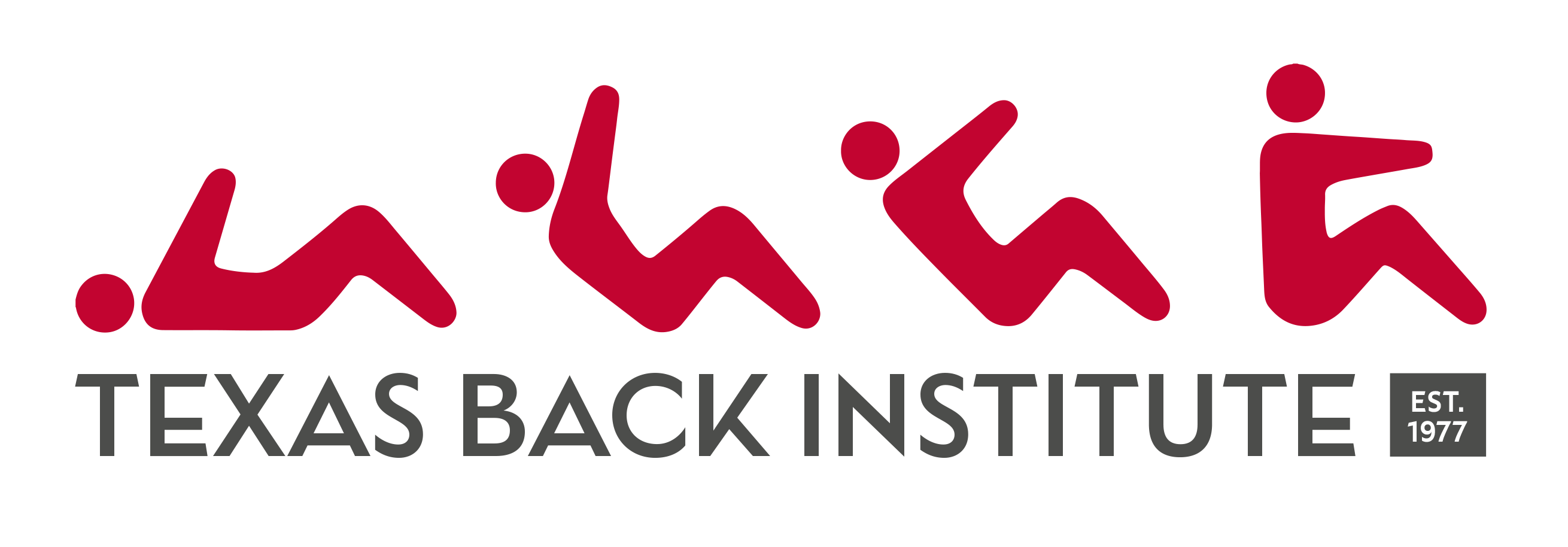
With the sound of “Pomp and Circumstance” ringing in their ears, the graduates of 2013 will be marching up to the stage and on to their future. There is a sense of accomplishment, pride and even relief at graduations because the participants feel they have completed something important. Texas Back Institute congratulates every graduate!
With graduations, it seems as if something has concluded, when in fact the term “commencement” suggests a beginning. This idea of “conclusion vs. commencement” has of course been employed by more than one valedictorian in their one, final address to their esteemed classmates.
Traditions of Graduation
This is the time of year when seniors in high school and college who have completed their courses successfully are awarded diplomas. This tradition goes back to the 11th Century when medieval colleges in Paris and Bologna reportedly began this practice.
Over the centuries, the traditions have evolved and changed, but many have remained remarkably similar to the original ceremonies. The students, who were known as apprentices in these early graduations, learned skills from the masters of the crafts and to note this accomplishment, they were give a “testimonial of skill,” now known as a degree.
The song that most of us associate with graduation ceremonies – “Pomp and Circumstance” – is a relatively new wrinkle on this ancient celebration. It was written by Sir Edward Elgar and first performed in Liverpool, England in 1901. Its melody, a combination of solemnity and dogged determination, is the perfect accompaniment to purposeful marching of the soon-to-be graduates.
Another interesting graduation ceremony tradition involves the attire of the honored matriculates. The cap and gown, which is worn by students and (in some cases) faculty, was once called a “hood” and this is believed to be dated back to ancient Celtic Groups. Capes and hoods were worn by the Druid priests to symbolize their higher intelligence.
What’s Next?
After the music finally stops, the mortar boards are tossed and the diplomas are filed away, what happens then? The graduate – of high school or college – must commence the next stage of his or her life. For many, this means getting more education and beginning the process of deciphering how to spend the rest of one’s life.
Texas Back Institute is internationally known for its state of the art treatment of neck and back injuries, back pain, scoliosis, artificial disc replacement, occupational and sports medicine and its exemplary physical therapy practice. However, for the past 27 years, Texas Back Institute, led by one of the organization’s founding partners, Dr. Richard Guyer, has offered a select group of medical school residents a remarkable opportunity – a one-year fellowship to focus on spine surgery.
To anyone talking with Dr. Guyer about the Texas Back Institute fellowship program, it is immediately obvious that he is just as enthusiastic as the young doctors who are chosen for the program. Much like the master craftsmen who trained the apprentices in earliest institutions of learning, there is a commitment to teaching these future surgeons that goes beyond cursory. The doctors who emerge from this program are changed forever.
With his interest in teaching, we thought Dr. Guyer might be a good source of advice for graduates of any level – high school, college or graduate school. Here is that conversation.

What areas of medicine will be in high-demand in the coming years?
There are so many opportunities in medicine, especially if a young man or woman is interested in computers, science or engineering. We’ve all read that more and more kids are interested in business, finance or high technology, but the opportunities in medicine are exploding. For example, the latest high tech robotic surgery equipment is still directed by a human who is a trained physician and many of the best practitioners of this specialty were video gamers when they were kids. Genetic engineering is going to be a very hot area of medicine in the coming years and this specialty requires a very analytical mind which many youngsters who are good at math and science possess.
If someone is graduating from college and accepted to medical school, what types of specialization might they consider for spine surgery or other specialties offered by Texas Back Institute?
When I first started in medicine, young physicians would spend a couple of years in medical school before they decided which specialty interested them. Things have changed a lot since then and now that decision is often made when they are in college. The types of procedures we do at Texas Back Institute involve a wide range of medicine. We handle spine surgery for both children and adults. Our doctors deal with trauma surgery which would be required for automobile accidents and other accidents. We treat injuries that are the result of aging – wear and tear damage. We also have quite a few sports injuries that our physicians treat. So you can see there is a wide range of opportunities just in the spine area.
How did the Texas Back Institute Fellowship program come about?
I’ve found that when you teach students, you learn as much as they do and I loved teaching. In the mid 80s, I approached my colleagues here and shared my passion about teaching. I mentioned that I’d really like to build a fellowship program here for residents who wanted to specialize in spine surgery. Since our beginning in 1986, we have trained more than 100 fellows and I have been the chairman of this program for 27 years. This keeps me young and sharp! We work hard at sharing the latest research and techniques about spine surgery for these young doctors and for everyone on the Texas Back Institute staff it is very gratifying when that light bulb comes on over the head of these talented young people.
How does the TBI fellowship program work?
These doctors have been through medical school and have completed their residency program. They find us through the network of former TBI fellows and through the American Academy of Orthopedic Medicine. Once they are accepted to the fellowship program, they work with all of the surgeons on our staff. They get hands-on training in deformative and degenerative medical issues, trauma, tumors and disc replacement surgery.
What are the criteria that Texas Back Institute uses to recruit new physicians to the practice? Does completing your fellowship help in gaining a position?
The last 4 or 5 physicians that we have hired have gone through the Texas Back Institute Fellowship program, so that suggests that there is an advantage of going through this training. When we recruit new doctors for our team, we look for a young woman or man with a high degree of intelligence, an excellent bedside manner, his or her ability to synthesize a large amount of information and apply it to treatment and most importantly we look for integrity.

From Left to Right: Dr. Rey Bosita, Dr. Rajesh Arakal, Dr. Jack Zigler, Dr. Jason Sparks (Fellow), Dr. Richard Guyer, Dr. Ralph Rashbaum, Dr. Troy Morrison (Fellow), Dr. Kirill Ilalov (Fellow), Dr. Michael Duffy, Dr. Kenny Edwards (Fellow), Dr. Andrew Block, and Dr. Dan Bradley.
Successfully completing a course of study and celebrating this accomplishment with friends and family is one of life’s great pleasures. As speakers who are chosen to impart wisdom to a group of graduates are fond of noting, this ceremony is not the conclusion, it is the beginning. Congratulations to every graduate and their families. Now, let’s get busy!

